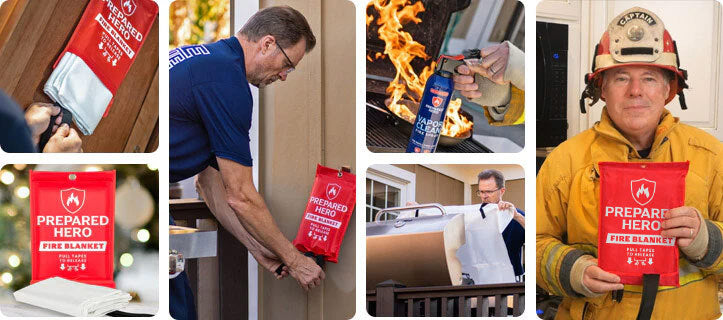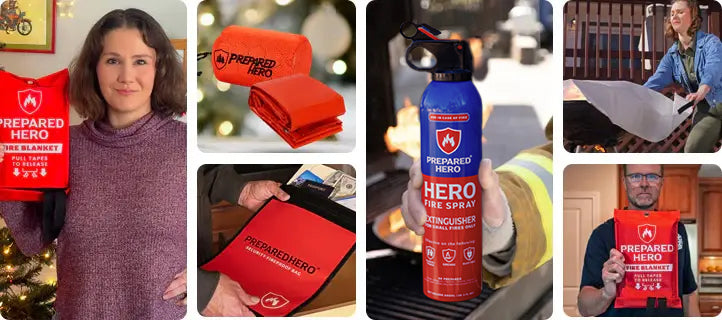Where you put your smoke detectors matters just as much as installing them. Proper placement makes sure they can detect...
Smoke detectors are among your first lines of defense against fires. In fact, the death rate is 60% lower in homes with working smoke detectors than in those with non-working or no alarms. Hence, we shouldn’t take beeping smoke detectors for granted, even without fire.
But why exactly is your smoke detector beeping? What is it telling you? Is there a way to fix it? In this guide, we’ll talk about the reasons why smoke detectors beep, how to fix them, and when to replace them. We’ll also cover how to clean your smoke alarms and replace their batteries.
Types of Smoke Detectors

Understanding the different types of smoke detectors helps you choose the best option for your home. Some are easier to install, while others offer added features like battery backup and interconnectivity. Knowing what each one offers lets you make an informed decision. Here are the types of smoke detectors based on technology and connection:
Based on Technology
Smoke detectors use different technologies, with each type offering unique benefits. Understanding how each type works helps you choose the right one. Here’s a quick look at the main types of smoke detectors based on the technology they use:
Photoelectric Smoke Detector
Photoelectric smoke detectors use light sources (usually infrared, visible, or ultraviolet light) with a photosensitive receiver. When particles enter the device, they scatter the light emitted by the source. The photosensitive receiver then detects this scattered light and triggers the alarm.
This type of detector works best in identifying slow, smoldering fires that produce significant amounts of smoke without instant flames. These types of fires are often caused by electrical malfunctions, overheated wires, or smoldering cigarettes. Since photoelectric detectors are more sensitive to smoke than temperature changes, they produce fewer false alarms than ionization detectors. For this reason, photoelectric smoke detectors work best for kitchens, bathrooms, and other areas with steam or cooking fumes.
Ionization Smoke Detector
Ionization smoke detectors use small amounts of radioactive material to ionize the air inside their chambers. This ionization process creates a flow of charged particles (ions) between two electrodes that produces a small current. Smoke particles attach to these ions when they go in. As a result, they disrupt the current and trigger the alarm.
Ionization smoke detectors are highly sensitive to fast-flaming fires that come from open flames or rapid combustion. These detectors best detect fires that spread quickly, like those caused by open flames from candles, stoves, or fabrics. While ionization detectors are more affordable than photoelectric detectors, they tend to produce more false alarms. It’s because they’re more sensitive to small particles like cooking fumes and hot bath steam. Despite this, ionization smoke detectors can detect fires in their early, fast-spreading stages, especially in homes with more fire hazards.
Combination Smoke Detector
Combination smoke detectors use photoelectric and ionization technologies. They can respond to more fires, including slow, smoldering fires and fast-flaming fires. Combination units also offer a more comprehensive fire detection system. Because of this, they’re ideal for homes or buildings at risk of slow and fast fires.
Plus, many combination detectors have additional safety features like carbon monoxide detection. They protect people from the odorless and colorless gas. This is particularly useful in homes with fuel-burning appliances like gas stoves, fireplaces, or water heaters.
Though combination smoke detectors are more expensive than single-tech units, they offer greater peace of mind. The convenience of having smoke and carbon monoxide detection in one unit can also reduce the number of devices needed at home.
Based on Connection
Some detectors are hard-wired into your electrical system, while others run on batteries. Each type has its benefits, depending on your needs and the size of your space. Here are the types of smoke detectors based on connection:
Hard-Wired Smoke Detector
Hard-wired smoke detectors are directly connected to your electrical system. This means that they have a constant power source. They’re ideal for homes or buildings with multiple floors. Hard-wired smoke detectors also have backup batteries that make sure they work when a power outage occurs.
The key benefit of hard-wired smoke detectors is their reliability. They’re also interconnected, which means they can communicate with one another. If one alarm detects smoke, other alarms will beep and alert everyone in the building. They’re also ideal for new construction or renovation projects where installing wiring is more cost-efficient.
Standalone Smoke Detector
Standalone smoke detectors run on batteries instead of connecting to an electrical system. They’re often used in smaller homes, apartments, or rooms where a full-fledged, hard-wired alarm system is not needed. Battery-powered smoke detectors are easier to install. They can also be placed in many locations without electrical wiring. Depending on the model, standalone smoke detectors can be powered by replaceable batteries (such as 9V or AA batteries) or long-life sealed batteries that can last for up to 10 years.
One of the main advantages of standalone smoke detectors is their low cost. They’re ideal for renters or homeowners who need a quick, easy solution without complicated installation. While these detectors may not be interconnected, they still alert those in the immediate vicinity of a fire. Although standalone smoke detectors don’t have the sophisticated features of hard-wired ones, they’re a more practical option for homes and businesses.
Why Is My Smoke Detector Beeping?

Smoke detectors beep for many reasons, like fire, low batteries, and old age. While false alarms can be annoying, you should take your detectors seriously. Their beeping means they’re trying to tell you something. Here are the most common reasons why your smoke detector is beeping:
1. Fire
A fire is the top reason why smoke detectors beep. Even if everything seems fine, always check for a fire when you hear that sound. Look around for signs like smoke or flames. If you spot a fire, act fast.
Try putting the fire out with a fire blanket or fire spray (only if it’s small and it’s safe to do so). But if it’s big or spreading fast, don’t risk it. Get out and call the fire department. Remember, your safety should always come first. Smoke alarms keep you safe, so take any warning seriously and make sure you’re prepared to act if needed.
2. Low Battery
Smoke alarms beep when their batteries are low. As the battery gets weaker, it struggles to power the alarm properly. Many smoke alarms are also built to beep when their batteries are about to die. For instance, hard-wired smoke detectors beep when their backup batteries are struggling.
Make it a habit to check and replace your smoke alarm batteries if needed. According to the National Fire Protection Association (NFPA), battery-powered alarms need new batteries at least once a year. If you change the batteries and the beeping continues, there might be a bigger issue, so it’s a good idea to take a closer look. Keeping your smoke alarm powered up keeps it reliable.
3. Old Alarms
As much as we’d like them to, smoke detectors don’t last forever. Most have a lifespan of 10 years. After this period, their sensors can begin to degrade. If your smoke alarm is beeping for no apparent reason after replacing the batteries and cleaning it, it’s time to replace the unit.
4. Electrical Malfunctions
In some cases, electrical malfunction can cause your smoke detector to beep. If your smoke alarm is hard-wired into your home’s electrical system, a fault in the wiring or an electrical surge can trigger it. This can happen because of issues like loose connections, damaged wiring, or power surges. If you suspect electrical issues are the cause, have a professional inspect your system. They can make sure everything is connected properly and prevent electrical malfunctions.
5. Cooking
Cooking is another common cause of beeping smoke detectors. Smoke from burnt food or boiling water can trigger the alarm. Ionization smoke detectors are more prone to these situations because they’re more sensitive to smoke.
Consider using a photoelectric smoke detector in your kitchen because they’re less likely to be triggered by small amounts of smoke. You can also place your smoke alarm a little further from the kitchen but near enough to detect fire. Using an exhaust fan or keeping the windows open also helps clear out smoke and prevent false alarms.
6. Dust or Debris
People often overlook dust and debris inside smoke detectors. But they can cause them to beep. Over time, dust, pet hair, soot, and the like accumulate inside your alarm. They confuse the sensors and make them go off. Even small particles can trigger the alarm, especially if the detector is near an area that collects a lot of dust.
Cleaning your smoke detectors with a vacuum cleaner or a soft brush can prevent dust and debris from messing with them. Do this at least once every six months to keep them in good working condition.
7. Temperature Changes
Some smoke alarms are extra sensitive to temperature changes, so a sudden shift can make them beep. For example, opening a window on a hot day or turning on the heater during the winter can cause temperature shifts. This can confuse the sensor.
Prevent your smoke detector from beeping unnecessarily by putting it far enough from areas with drastic temperature changes. These include vents, windows, and heaters. You can also use a thermostat to keep the temperature inside your home more consistent.
8. Humidity
Humidity can also make smoke alarms beep. If you live in a humid area or take a lot of hot showers, the moisture in the air can mess with the alarm. The smoke detector might mistake the moisture particles for smoke. This tends to happen to ionization alarms that are more sensitive to particles in the air.
Prevent this by placing your smoke detector away from areas with high humidity, like the bathroom and kitchen. You can also use fans, open windows, or use a dehumidifier to reduce false alarms.
9. Insects
Believe it or not, insects can trigger smoke alarms. For instance, spiders are often attracted to the small, dark spaces inside smoke detectors. They might crawl into yours and cause it to beep. Insects can also interfere with the sensor and cause it to malfunction.
Avoid this by making sure your smoke detectors are installed in areas where insects won’t make homes. If you suspect that bugs are causing the issue, carefully remove the alarm, check for insects, and clean it. Sealing gaps around your windows and doors also keep bugs out of your home.
10. Fireplace and Outdoor Smoke
Smoke from fireplaces and grills can also make smoke detectors beep. You see, smoke can easily drift inside, especially if your windows and doors are open. This is more likely to happen when there’s little wind to blow the smoke outside.
How to Stop Your Smoke Detector From Beeping Unnecessarily
Is your smoke detector beeping even when there’s no fire? It can be annoying, especially when you're trying to relax or sleep. Fortunately, you can stop the noise easily and keep your alarm working properly. Here’s how to do it:
- Replace the batteries: Low batteries are a common cause of beeping. Replace them with fresh ones to restore power to the alarm.
- Clean the smoke detector: Dust or bugs can interfere with your alarm. Clean it regularly with a vacuum or a soft brush to keep it working properly.
- Check for temperature changes: If your alarm is near a heat source, like a stove or heater, temperature changes can trigger it. Move it to a more stable area away from these sources.
- Get new smoke detectors: Smoke alarms wear out after about 10 years. If it’s old and still beeping, replace it for safety.
- Inspect the wiring: Loose or damaged wires in hard-wired detectors can cause issues. Check the connections and call a professional if needed.
- Relocate the smoke detector: Moving the alarm away from the kitchen, bathroom, or fireplace can reduce false alarms caused by steam or smoke.
- Reset the alarm: Hold the test button for at least 15 seconds to reset the system and remove residual charge.
- Test your alarm’s sensitivity: Some alarms are too sensitive. Use the test button or adjust sensitivity settings if available.
- Press the silent button: Use the hush button to stop the beeping when there's no danger, especially when you’re cooking.
Find out more about how to stop a smoke detector from beeping unnecessarily here.
What Do Smoke Detector Beeps Mean?
Smoke detector beeps can be confusing, but they keep you safe. Knowing what each sound means lets you respond properly. Here are the different smoke detector beeps and what they mean:
Continuous Beep
A loud, continuous beep usually means that the device detected smoke. This could mean a fire, so check for smoke or flames. If the fire is small and it’s safe, try to put it out. Otherwise, leave and call the fire department right away.
Single Beep
A single beep every 30 seconds or so usually means the battery is low and needs to be replaced. Check for other issues if the beeping continues after changing the battery.
Multiple Beeps
Multiple beeps mean rising smoke or carbon monoxide levels, especially in combo detectors. It can also mean the smoke detector has reached the end of its life.
Irregular Beeping
Irregular beeps can be caused by temperature changes. If your smoke detector is near a vent, window, or fan, try moving it to a more stable location away from extreme temperature shifts.
Loud and Fast Beeps
Fast, loud beeps usually signal a fire. Even if you don’t see flames or smoke, don’t ignore it. Check your surroundings thoroughly to confirm if there’s a fire. For instance, electrical fires could be hidden behind walls and ceilings. Find out what an electrical fire smells like here.
Why Is My Hard-Wired Smoke Detector Beeping?

Hard-wired detectors are more complex than battery-powered ones because they’re wired together. Understanding why your hard-wired smoke detector beeps helps you figure out what’s wrong. Check out these common reasons so you can fix them before they become bigger problems:
- Dead Backup Battery: Your hard-wired smoke detector has a backup battery, so it can work during power outages. When the battery runs low, it will beep to alert you.
- Dust Inside the Detector: Dust can accumulate inside your hard-wired smoke detector, especially if it's mounted high up. This can mess with its sensors and cause false alarms.
- Malfunctioning or Old Detector: Like all electronics, smoke detectors wear out over time. After 10 years, the components start to fail, causing the alarm to beep. Even new detectors can malfunction.
Are you curious about the exact causes? Find out more about why your hard-wired smoke detector is beeping here.
Why Is Your Smoke Detector Beeping With a New Battery?

- Improperly Installed Battery: If the new battery isn't properly installed, most smoke detectors will beep to let you know it’s not aligned correctly.
- Malfunctioning Detector: Old smoke detectors or those with internal damage may beep even after the battery is replaced.
- Reset Mode: Your smoke alarm might still be in reset mode after replacing the battery. Holding down the test button for 20 seconds can stop the beeping.
- Dust Buildup: Dust and dirt can accumulate in the sensor and trigger random beeping. Cleaning the detector regularly can prevent this.
- Power Interruption: If there’s a power outage or the smoke detector is disconnected from the electrical system, it might beep to signal it’s not receiving enough power.
- Old Age: Smoke detectors generally last up to 10 years. Once they reach the end of their life, they will beep to tell you it’s time for a replacement.
Wondering what's going on with your smoke alarm? Find out more about why your smoke detector is beeping with a new battery here.
Why Did My Fire Alarm Randomly Go Off in the Middle of the Night?

- Low Battery: This happens because the battery can no longer provide enough power for the alarm to function properly.
- Humidity: Excess moisture in the air can mess with the sensor, especially in ionization alarms, which are more sensitive to small particles.
- Cooking: Smoke from burnt food or boiling water can set off the alarm. It’s more likely with ionization alarms, which are sensitive to small amounts of smoke.
- Dust or Debris: Dust, dirt, or debris can build up inside the alarm. This confuses the sensor and causes random beeping.
- Temperature Changes: Sudden temperature shifts can trigger a smoke alarm. They can happen when you open a window or turn on the heat. They’re also common during the night when temperatures drop.
- Insects: Bugs can crawl into smoke detectors and trigger the alarm. Their presence can also interfere with the sensor.
Want a more detailed explanation? Find out more about why your fire alarm randomly goes off in the middle of the night here.
My Smoke Detector Is Beeping Three Times: What Does It Mean?

Ever wondered why your smoke detector beeps three times? It might be telling you something important. From sensor issues to power problems, there are several reasons behind the beeping. Check them out below:
- Malfunctioning Sensor: A malfunctioning sensor can cause your fire alarm to beep three times. Dirt, damage, or wear and tear can affect its capability to detect smoke properly.
- Low Battery: A low battery can also trigger your smoke detectors. It reminds you to replace the battery as soon as possible.
- Power Interruption: A power cut can make your fire detector beep. If the power supply gets disrupted, the alarm switches to battery power or turns off and beeps as a warning.
- Smoke or Dust Buildup: Smoke or dust buildup can cause your fire detector to beep three times. This is more likely to happen if the detector is near cooking areas or vents.
Where to Place Smoke Detectors At Home

Want to keep your home safe from fires? It starts with knowing the best spots to put your smoke alarms. Placing them in the right areas makes sure you’re warned in time. Here’s where to place your smoke detectors at home:
Bedrooms
Place a smoke alarm inside each bedroom. This makes sure you’ll be alerted quickly if a fire starts while you’re sleeping. It also gives you time to escape, especially if you live with kids or the elderly.
Kitchen
Install a smoke alarm at least ten feet away from your stove or oven to avoid false alarms. Kitchens are a common fire source, so make sure there’s a smoke alarm nearby.
Every Floor
Each floor, including the basement and attic, should have at least one smoke alarm. This makes sure you get alerts no matter where the fire starts.
Living Area
Put a smoke alarm in your living area, especially if you have a fireplace, candles, or space heaters.
Stairs
Install smoke alarms at the top and bottom of the stairs. They help alert people upstairs and downstairs.
How to Install a Smoke Alarm

Whether you’re a first-timer or just need a quick refresher, here’s an easy guide to help you install your smoke alarm:
1. Pick the Right Spot
Choose locations like bedrooms and hallways. Avoid placing the alarm near windows, fans, heaters, or air conditioners, as strong airflow can mess with its sensors.
2. Install the Mounting Bracket
Hold the bracket in place and mark the spots for screws. Then, drill small holes and insert the plastic anchors. Secure the bracket with screws, but don’t tighten them too much.
3. Add the Batteries
Open the battery compartment and insert the batteries. Make sure they’re aligned to the right terminals.
4. Attach the Smoke Alarm
Line up the smoke alarm with the mounting bracket. Then, twist it into place until it clicks.
How Often Should You Test Your Smoke Alarm?

Keeping your smoke alarm in top condition is easier than you think. Find out how often you should test your smoke alarm below:
- Monthly: Check your smoke alarm once a month to make sure it's working properly.
- After Battery Changes: Always test your smoke alarm after changing the batteries. If you have battery-powered alarms, replace their batteries at least once a year.
- After Cleaning: Dust can affect your smoke alarm’s performance. Gently clean it and test it afterward to make sure it works.
How to Clean Your Smoke Alarm

Keeping your smoke alarm clean is a must for it to function properly. A dirty alarm might fail to warn you of a fire. Here’s how to clean your smoke alarm properly:
1. Turn off the power.
Start by turning off the power to your smoke alarm to avoid triggering it while you clean.
2. Remove the smoke alarm.
Detach the smoke alarm from its bracket carefully. If it’s hard-wired, unplug it gently from the wall or ceiling.
3. Vacuum the outside.
Use a vacuum with a soft brush attachment to clean the outside of the alarm. You can also use a toothbrush to remove dust from grooves and crevices.
4. Clean the inside.
Dust and debris inside the vents can block the alarm’s sensors. Use a vacuum or compressed air to clean the vents and prevent buildup.
5. Wipe it.
Wipe the surface of the alarm with a dry microfiber cloth. Avoid using liquid cleaners to prevent damage.
6. Reinstall the alarm.
Place the smoke alarm back on its bracket or reattach it based on the manufacturer’s instructions.
7. Turn the power back on.
Go to the circuit breaker and restore the power. Check if the smoke alarm is receiving power through a light or beep.
8. Test the alarm.
Press the test button to make sure the smoke alarm is working. If it doesn’t beep, check your steps again.
When to Replace Your Smoke Detectors

Is your device acting up? It might be time to replace your smoke alarm for safety reasons. From old age to frequent false alarms, find out when it’s time to say goodbye to your smoke detector below:
- Your smoke alarm is over ten years old: Smoke alarms usually last about ten years. If yours is older, replace it immediately. It’s not reliable anymore.
- Your smoke alarm is turning yellow: A yellowing smoke alarm means the flame retardant inside is changing and telling you to get a new one.
- Your smoke alarm keeps beeping without fire: If your alarm keeps beeping despite having new batteries, it could be malfunctioning or near the end of its life.
- False alarms happen often: As smoke alarms age, they can trigger false alarms. If this happens often, replace it as soon as you can.
- Your smoke alarm fails the monthly test: Test your smoke alarm monthly. If it doesn’t beep when you press the test button, replace it.
- Your smoke alarm has been recalled: Some smoke alarms get recalled because of new regulations or manufacturing issues. Replace your alarm immediately if it gets recalled.
- Your smoke alarm was painted over: Painting over a smoke alarm can block smoke from reaching the sensor and make it unreliable. If this happens, the best route is to replace the device.
How Long Do Smoke Detectors Last?

Smoke detectors keep your home safe from fires, but they don’t last forever. A smoke detector usually lasts up to 10 years, but several factors can affect how long it remains effective. Plus, different types of smoke detectors have different lifespans:
- Combination Smoke Detectors: These devices can detect smoke and carbon monoxide. They tend to last between five and seven years. The added sensors used for carbon monoxide make them more sensitive but also reduce their lifespan.
- Hardwired Smoke Detectors: These detectors are directly connected to your home’s electrical system. They can last up to 10 years. They also have backup batteries that last for one to two years.
- Battery-Operated Smoke Detectors: They usually last for five to 10 years. According to the NFPA, their batteries need to be replaced once a year.
Looking for a complete breakdown? Check out our full guide to how long smoke detectors last here.
Conclusion
Understanding why smoke detectors beep plays a huge part in fire safety. Whether it's a potential fire or a low battery, knowing what the sound means helps you act quickly.
But remember, smoke detectors are just one piece of the puzzle. They work best when paired with other fire prevention tools like fire blankets, fire sprays, and fire protection gloves. Having these tools nearby gives you extra peace of mind and helps you stay safe in an emergency.
Do you want reliable, easy-to-use, and affordable tools to put out small fires before they spread? Check out Prepared Hero’s fire prevention tools here, and get up to 51% off on certain items. Stay prepared, hero!


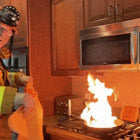 Fire
Fire Safety
Safety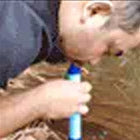 Survival
Survival Protection
Protection New
New Scouting America
Scouting America
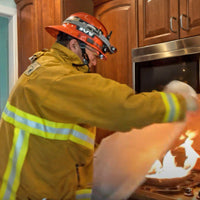 Fire
Fire Safety
Safety Survival
Survival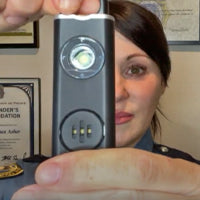 Protection
Protection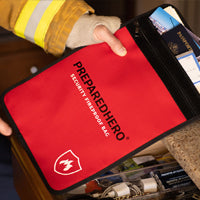 New
New






